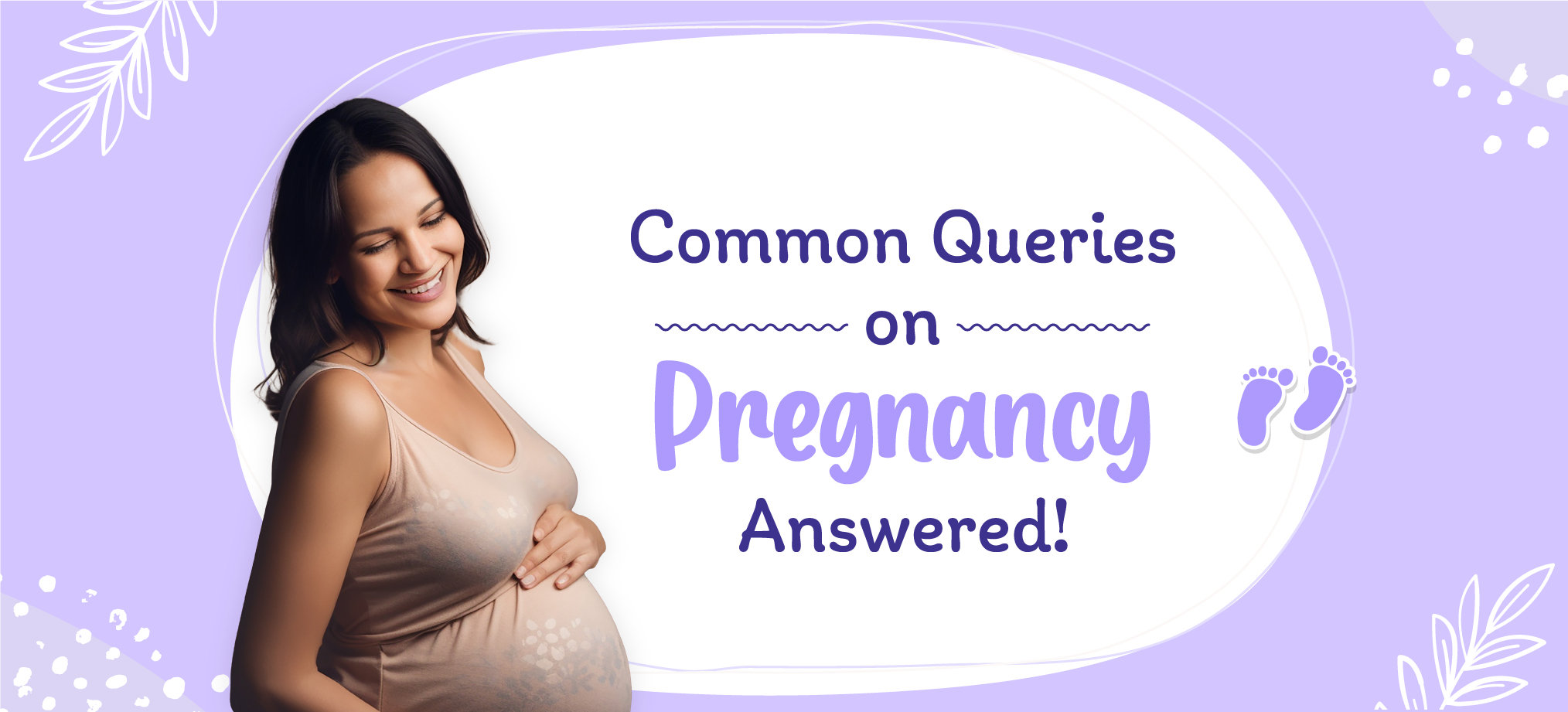- Home
- Blog
- Mom & Baby Care
Low BP During Pregnancy: Early Symptoms, Causes, Effects, Treatment
Mom & Baby Care
Low BP During Pregnancy: Early Symptoms, Causes, Effects, Treatment
By Apollo 24|7, Published on- 22 June 2023
Share this article
0
0 like

Low blood pressure during pregnancy is a common occurrence, particularly in the first and second trimesters. While it typically doesn't pose major health risks, some women may experience bothersome symptoms. It's always a good idea to consult with a doctor in case any of the symptoms manifest to ensure a healthy pregnancy. In this article, we will explore the causes, symptoms, effects, and treatments for low BP during pregnancy.
What is Considered Low Blood Pressure During Pregnancy?
Blood pressure (bp) plays a crucial role in assessing the health of both the mother and baby during pregnancy. Normal blood pressure ranges below 120/80 mmHg, with the top number representing systolic pressure and the bottom number indicating diastolic pressure.
While a reading lower than this may be normal for many individuals, a person is diagnosed with low bp if their reading is around 90/60 mmHg.
Research says, during the first 12 weeks of pregnancy, blood pressure may drop, remaining low throughout the first and second trimesters before rising again in the third trimester. Doctors will closely monitor blood pressure post-birth to detect any potential complications.
Symptoms of Low Blood Pressure During Pregnancy
Although low blood pressure is generally not an alarming situation, certain women may find the symptoms concerning. These symptoms can include:
- Nausea & vomiting
- Dizziness
- Confusion
- Lightheadedness that may lead to fainting, particularly after standing up quickly
- Breathlessness or taking rapid, shallow breaths
- General fatigue that may worsen throughout the day
- Cold, clammy, or pale skin
- Depression
- Feeling thirsty despite drinking water
- Vision problems, like double vision or blurred vision
Causes of Low Blood Pressure During Pregnancy
The changes that occur in the body during pregnancy can have an impact on your blood pressure. The expansion of your circulatory system due to carrying a baby can cause a decrease in blood pressure, particularly in the first 24 weeks of pregnancy.
Apart from this, other factors that can result in low blood pressure during pregnancy include:
- Dehydration
- Anaemia
- Infections
- Allergic reaction
- Prolonged bed rest
- Heart conditions
- Kidney disorders
- Endocrine disorders
- Nutritional deficiencies
- Internal bleeding
Effects of Low Blood Pressure on Pregnancy
The risks associated with low blood pressure during pregnancy include:
- One of the primary risks associated with low blood pressure during pregnancy is the possibility of falling and fainting. Women experiencing low blood pressure who stand up suddenly may faint, which can lead to injuries to both the mother and the baby.
- Severely low blood pressure may lead to organ damage or shock.
- Low bp during pregnancy may also result in compromised blood flow to the baby, posing risks to its health.
- Additionally, some research has linked continuous low blood pressure during pregnancy to adverse outcomes, including low birth weight and stillbirth.
- However, further research is needed to fully understand the impact of low prenatal blood pressure on the baby's health.
Treatment for Low Blood Pressure During Pregnancy
In most cases, treatment is not required for low blood pressure during pregnancy. Medications are generally not prescribed unless symptoms are severe or complications are expected. Blood pressure often increases naturally in the third trimester. However, if episodes of unusually low blood pressure occur, medication may be necessary.
Treating underlying conditions, such as anaemia or hormonal imbalances, is essential if they keep causing a drop in bp. To alleviate symptoms of low blood pressure, women can try following these tips:
- Avoid standing up quickly when you are lying or sitting down.
- Sit or lie down slowly if feeling faint and keep breathing steadily.
- Try lying down on your left side to increase the flow of blood to your heart.
- Rest frequently to reduce fatigue and give your body time to recover.
- Drink plenty of fluids to avoid dehydration and morning sickness.
- Consume small frequent meals all through the day instead of a few large meals.
- Maintain a nutrient-rich diet.
- Avoid taking hot baths/showers.
- Wear loose clothing as much as possible.
Prevention of Low BP during Pregnancy
Although it is not possible to completely avoid low blood pressure during pregnancy due to physical and hormonal changes, there are preventive measures you can take to avoid its more serious symptoms:
1. Address Underlying Conditions
While low blood pressure in pregnancy is typically caused by normal vascular and hormonal changes, underlying medical conditions like anaemia can contribute. Regular blood tests like complete blood count can identify anaemia, and if present, iron supplements may be recommended.
2. Discuss Medication with Your Doctor
Some medications can lower blood pressure, therefore, it is adviced to inform your doctor about all medications you are taking. This would help your doctor determine if adjustments are necessary, especially if you are on medication for high blood pressure.
3. Engage in Regular Exercise
Exercising for 30-60 minutes a day, particularly activities that increase your heart rate, promotes heart health and increases blood pressure if it gets too low. Exercise also boosts blood circulation. However, you must consult your doctor before trying any new exercise.
4. Stay hydrated
Dehydration can contribute to low blood pressure. Aim to consume the recommended 2-3 litres of fluids per day. If plain water is challenging, you can switch to electrolyte drinks, coconut water or decaffeinated tea. Consult with your doctor before making any changes to your diet.
Foods to Eat to Prevent Low BP During Pregnancy
Certain foods can help raise your blood pressure and prevent it from dropping too low. Consider incorporating the following into your diet:
- Foods Rich in Vitamin B-12: Vitamin B-12 deficiency can contribute to anaemia, which results in low blood pressure and fatigue. Include eggs, animal meats, fortified cereals, and nutritional yeast in your meals to increase your B-12 intake.
- Foods Packed with Folate: Inadequate folate levels can also lead to anaemia and low blood pressure. Add asparagus, lentils, beans, citrus fruits, eggs, leafy greens, and liver to your diet for a good source of folate.
- Salt: Salty foods can raise blood pressure. Consider consuming cottage cheese, smoked fish, olives, and pickled items to help increase your blood pressure.
- Caffeine: Coffee and caffeinated tea can temporarily elevate blood pressure by stimulating your cardiovascular system and increasing your heart rate. However, drinking too much caffeine during the pregnancy can be dangerous. Ask your healthcare provider before adding caffeine to your daily diet.
Foods to Avoid to Prevent Low BP During Pregnancy
To prevent low blood pressure during pregnancy, it is recommended to avoid consuming the following:
- Cut Down Your Carb Intake: Limiting high-carbohydrate foods, especially processed carbs, can help prevent sudden dips in blood pressure. Some studies suggest that a low-carb diet can offset hypotension, particularly in older adults.
- Avoid Alcohol: Drinking alcohol during pregnancy can be extremely dangerous for both the mother and the baby. It can dehydrate you and lower your blood pressure by reducing blood volume.
Takeaway
During regular pregnancy check-ups, doctors monitor blood pressure and provide guidance or treatment options for low or high blood pressure. If you experience, frequent episodes of dizziness or fainting, seek medical care. Emergency care should be sought if fainting is accompanied by severe headache, shortness of breath, vision changes, chest pains, weakness on one side of the body, numbness, or if low blood pressure persists into the third trimester or for an extended period. If you have more questions, consult expert gynaecologists.
FAQs
Q. What fruits are beneficial for low blood pressure?
Citrus fruits like orange, lime, and grapefruit are good for individuals with low blood pressure. Additionally, incorporating green leafy vegetables into your diet is recommended.
Q. What is considered a normal blood pressure range for pregnant women?
Pregnant women can experience low blood pressure (below 120/80 mmHg) during the first & second trimester, which can rise back up in the third trimester.
Q. How should I address low blood pressure?
Appropriate treatment for low bp depends on your symptoms. This may involve increasing fluid intake to prevent dehydration, taking medications to increase blood pressure, or adjusting current medications. Your doctor may also discuss lifestyle changes, including dietary modifications and sitting/standing techniques.
Q. What are the symptoms of low blood pressure?
The initial signs of hypotension may include dizziness, nausea, lack of energy, difficulty concentrating, lightheadedness leading to fainting, cold and clammy skin, blurred vision, rapid breathing, or chest pain.
Q. Can low blood pressure be caused by skipping food?
Yes, postural hypotension, which refers to a sudden drop in blood pressure upon standing up, can occur due to various factors, including insufficient food intake.
Medically reviewed by Dr Sonia Bhatt.
Services
Mom & Baby Care
Leave Comment
Services
Recommended for you

Mom & Baby Care
Pregnancy Tips: Answering Common Questions Asked By Women Who Just Conceived
You could have a lot of concerns as a future mother-to-be about what to expect during this momentous time. There are several factors to consider, from morning sickness to prenatal care. This blog post is put together in order to address some of the most frequent queries that newly pregnant women may have.

Mom & Baby Care
Anaemia in Children: Signs, Causes, and Treatment
Learn about the causes, symptoms, and treatment options for anaemia in children. Discover lifestyle changes and medical interventions to manage anaemia effectively.

Mom & Baby Care
Here's How To Get A Flat Tummy Post Pregnancy
Learn all about postpartum diet, exercises and other techniques to get a toned tummy after childbirth.
Subscribe
Sign up for our free Health Library Daily Newsletter
Get doctor-approved health tips, news, and more.

